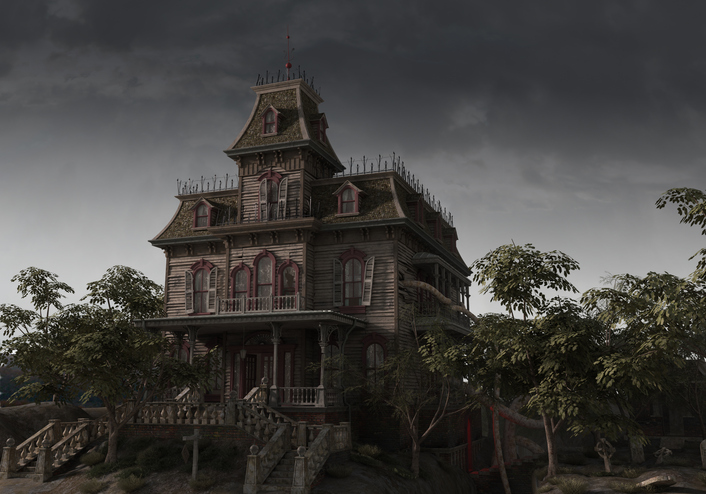
Seller’s Disclosure Law is all about making sure no one gets tricked by unexpected “treats” in their new home. The law in Pennsylvania is that sellers must disclose material defects with a residential property that would have a significant, adverse impact on the property’s value or that involves unreasonable risk to the people on the property. However, there are several instances where a seller does not have to disclose certain information.
Does a seller need to disclose that a death occurred in the property?
Typically, no. This is called a “stigmatized property.” The National Association of Realtors® defines a stigmatized property as “a property that has been psychologically impacted by an event which occurred, or was suspected to have occurred, on the property, such event being one that has no physical impact of any kind.”
Every state has different laws on stigmatized properties. In Pennsylvania, the case Milliken v. Jacono set the path for whether deaths in a property are (or are not) disclosed in the state. The Supreme Court held the mere fact of a death (in this instance, a murder/suicide) is considered to be a “pure psychological stigma,” which is not a material defect of the property that sellers must disclose to buyers. The Court further stated that the buyers “possessed the tools to discover the murder/suicide and did not do so.”
But remember that since buyers do have the ability to do their own research – and that neighbors inevitably tell the new owners exactly what happened, there may be practical reasons to make a disclosure even if it’s not legally required.
What does “typically, no” mean? Are there some situations where the seller does needs to disclose a death?
A key distinction in Milliken is that the mere fact of a death is not a defect that physically affects the property. But if a death does have a physical impact, that physical impact would be disclosed and it may naturally lead to disclosure of the death itself. For example, if a death involves property and repairs of damage caused by bodily fluids, the damage and repairs likely have to be disclosed.
What should I say if someone asks me about a death in the property?
Whatever your seller directs you to say, as long as it’s truthful. That might be, “You bet – here’s just what happened!” or it might be, “I’m not at liberty to discuss that issue.” But of course, the law and NAR’s Code of Ethics dictate that you can’t lie.
Does a seller need to disclose that their house is “haunted”?
Some buyers might perceive a stigmatized property or “haunted house” negatively, while others may like the appeal, and even use it for publicity. Again, if there’s no physical impact, the seller likely doesn’t need to disclose. The key takeaway from that spooky story is to remind buyers to do their own due diligence when looking at residential properties.
How about plots or burial grounds on properties? Do those need to be disclosed?
Since this clearly has a physical impact on the property, our general response is to disclose if there is a body (or more?) buried in the backyard. Aside from that general issue, there are very specific laws regarding burial sites and cemeteries, including certain requirements to allow access in certain circumstances. Additional information can be found on the Pennsylvania Historic & Museum Commission’s website. We also suggest reaching out to the Pennsylvania Cemetery, Cremation and Funeral Association for additional questions that may be out of our legal scope on the Legal Hotline.
Let this article serve as a reminder that not everything about residential properties must be unmasked by the seller. While material defects are required to be disclosed, some chilling details — like deaths, murders, or hidden burial sites — may not always come to light. This leaves buyers with a responsibility to dig deeper and investigate any eerie rumors surrounding their potential new home. Whether your buyer is brave enough to embrace a “haunted house” or wary of hidden horrors, understanding the law ensures that they won’t be caught off guard by any skeletons — literally or figuratively.
Topics
Member Discussion
Recent Articles
-
Webinar Recap: Agreement of Sale Refresher
- July 11, 2025
- 8 min. read
PAR’s Legal Team provided an Agreement of Sale Refresher webinar focused on hot topics, ranging from deposits to possession, mortgage contingency to inspection contingency.
-
Buy Now, Pay Later Gaining Popularity
- July 10, 2025
- 2 min. read
As Americans face higher costs of living, the option to buy now and pay later is gaining popularity, seeing an estimated $125 billion in payment values by 2027.
-
Is an Open-Concept Floor Plan Right for You?
- July 9, 2025
- 3 min. read
Open-concept floor plans have been popular since the mid-20th century, but more people today are considering traditional layouts instead. Here are some pros and cons of open concepts.
Daily Emails
You’ll be the first to know about real estate trends and various legal happenings. Stay up-to-date by subscribing to JustListed.



